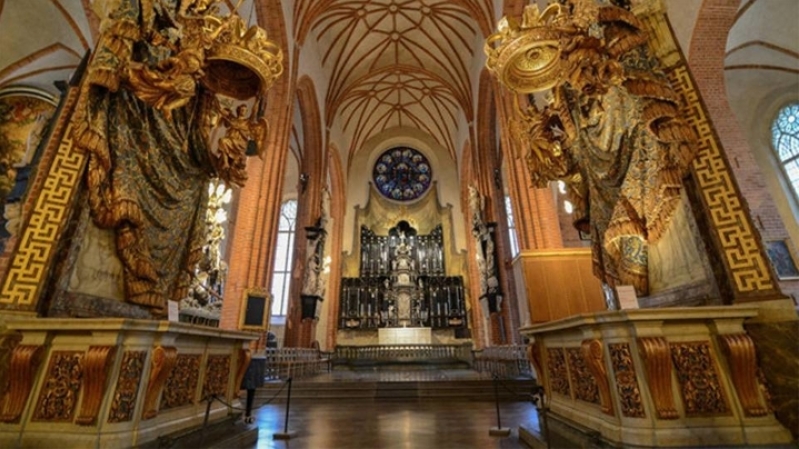
When referring to God the Father, the Church of Sweden is encouraging clergy to use gender-neutral terms instead of "He" or "the Lord" in an attempt to "modernize" church services.
According to The Telegraph, the decision was made earlier this month following an eight-day meeting of the church's 251-member decision-making body.
"The decision will take effect on May 20 during Pentecost," notes the outlet. "It is the latest move by the national Evangelical Lutheran church to modernize its 31-year-old handbook setting out how services should be conducted."
The new guidelines encourage priests to open their services by referring to the traditional "Father, son and Holy Ghost" or the gender-neutral phrase "in the name of God and the Holy Trinity."
"We talk about Jesus Christ, but in a few places we have changed it to say 'God' instead of 'he'," Church of Sweden spokesperson Sofija Pedersen Videke told The Telegraph, adding that a "wide majority of people" decided on the change. "We have some prayer options that are more gender-neutral than others."
Head of the Church of Sweden, Archbishop Antje Jackelen, also defended the decision, telling Sweden's TT news agency: "Theologically, for instance, we know that God is beyond our gender determinations, God is not human."
However, Christer Pahlmblad, an associate theology professor at Lund University in Sweden, told Danish newspaper Kristeligt Dagblad that the decision was "undermining the doctrine of the Trinity and the community with the other Christian churches."
"It really isn't smart if the Church of Sweden becomes known as a church that does not respect the common theology heritage," he said.
Earlier this year, two of the top divinity schools in the United States - Vanderbilt and Duke - asked faculty to use "more inclusive" language when talking about God - meaning professors must now use "gender-neutral" terms when discussing Him as to not offend students.
Vanderbilt's divinity school's course catalog as states: "The Vanderbilt Divinity School commits continuously and explicitly to include gender as an analyzed category and to mitigate sexism in the Divinity School's curricula ... This includes consistent attention to the use of inclusive language, especially in relation to the Divine."
In turn, the Duke guidelines said that "exclusively gendered language" can be "harmful and exclusionary."
"'Man' is now viewed as what we call an 'exclusive' use of language; that is, it is seen as excluding women," reads the guidelines. "Therefore, we recommend that you find other ways to refer to humankind in general and use terms that are inclusive. For example, instead of man and mankind, consider using: humans, people, persons, everyone, men and women, children of God, etc."
In an op-ed for Charisma News, editor Jennifer LeClaire slammed the idea that God is gender-neutral, calling it "disturbing" and evidence of a "wave of deception sweeping through the church." She points out that throughout the Bible, God is described as our Father (not our mother) and Jesus, the expression of God on the earth, was a man (not a woman).
She argues that the Bible is full of "diverse terms" for God, including "the Alpha, the Branch, the Bridegroom, the Chief Shepherd, the Consolation of Israel, the Dayspring, the Bread of Life, the Desire of Nations, Emmanuel, the Faithful and True Witness" - and gender neutral terms aren't needed.
"Make no mistake, God is not a woman," LeClaire concludes. "He never has been and He never will be. This, though, is just another symptom of a greater problem-a perversion of the Word of God that will lead many astray and even into a Great Falling away. I beseech you in this hour to be a lover of the truth, speak the truth in love, and pray for the church in this hour."







